Should election day be a holiday? Many North Carolina legislators think so.
An election day holiday bill advances in the General Assembly
House Bill 31, directly entitled “Make Election Day A State Holiday,” is advancing in the General Assembly. The bill’s primary sponsors are Brian Biggs (R-Randolph), Stephen M. Ross (R-Alamance), Neal Jackson (R-Moore, Randolph), and Kyle Hall (R-Forsyth, Stokes). While those are all Republicans, the bill has a host of co-sponsors from both major parties. It has been moved from the House Rules Committee to the Committee on Election Law, another sign that has a good chance of passing in the House.
The bill has two components. First, it adds “each statewide general election day” to the list of paid holidays for state workers. Second, it increases the maximum number of state holidays from 12 to 13.
Most primary and secondary students already have election day off
Many school systems across North Carolina already keep students out of school on election day. A review of academic calendars of the state’s 115 public school systems found that 50 had a teacher workday on election day in 2024, and two had all or some of their schools on remote learning. The schools that had teacher workdays on election day include the state’s largest school systems (such as Wake County, Charlotte-Mecklenburg, Guilford County, Winston Salem/Forsyth County, and Cumberland County), meaning that most North Carolina students were not in school that day.
Not having students in school on election day makes sense if the county wants to use schools for voting. It makes it logistically more straightforward to use school buildings as polling places. It also relieves school officials of the security concerns of having unvetted adults on campus while their young charges are there.
Election day is not a holiday for UNC System universities.
Would making election day a holiday boost turnout?
One common argument for making election day a holiday is that it would increase voter turnout. Would it?
Fourteen states already make election day a holiday. That allows the comparison of holiday and non-holiday states, controlling for other factors (such as demographics) that might affect turnout. A 2009 working paper from Princeton University shared the results of just such a comparison. They were not encouraging:
The results are clear. There is no evidence from the “natural experiment” of states providing an election holiday for state employees that such holidays significantly increase voter turnout. I conclude that having an election holiday, by itself, is not an effective strategy to increase voter turnout.
While other research results are mixed, empirical studies support the view that making election day a holiday will not boost turnout as its proponents claim.
An election day holiday might still be worthwhile
Adding another holiday to the calendar every other year would not be without cost. That cost can be difficult to measure, however. There would not be a large direct expense to taxpayers since it would not affect salaries. While taking state employees from their jobs would not have the same negative effect on productivity as a similar day without work would have in the private sector, it would reduce some services. For example, do we want to give the DMV one less day to serve drivers?
So, if making election day a holiday would not boost turnout and would create at least some burdens on those interacting with state government, why bother doing it?
Shutting down state government on election day would have two benefits. First, it would open more facilities for election-day voting, which is one reason why so many schools across the state already close on election day.
Perhaps more importantly, it would open a large group of people to potentially serve as poll workers. The state employs over 76,000 workers. Giving them election day would free that labor for election work, especially if the state encourages them to do so. The state took a step in that direction in 2024 by telling employees that they could use their community service leave to serve as poll workers. Poll worker recruitment is a constant struggle in North Carolina as it is elsewhere. Freeing up state workers on election day could help address it, especially if county governments follow the state’s lead and let their workers off on election day.
Those benefits would be especially welcome if a bill to reduce the number of early voting days becomes law and results in more people choosing to vote on election day.
Making election day a holiday can be beneficial, but not in the way that its proponents assume.
